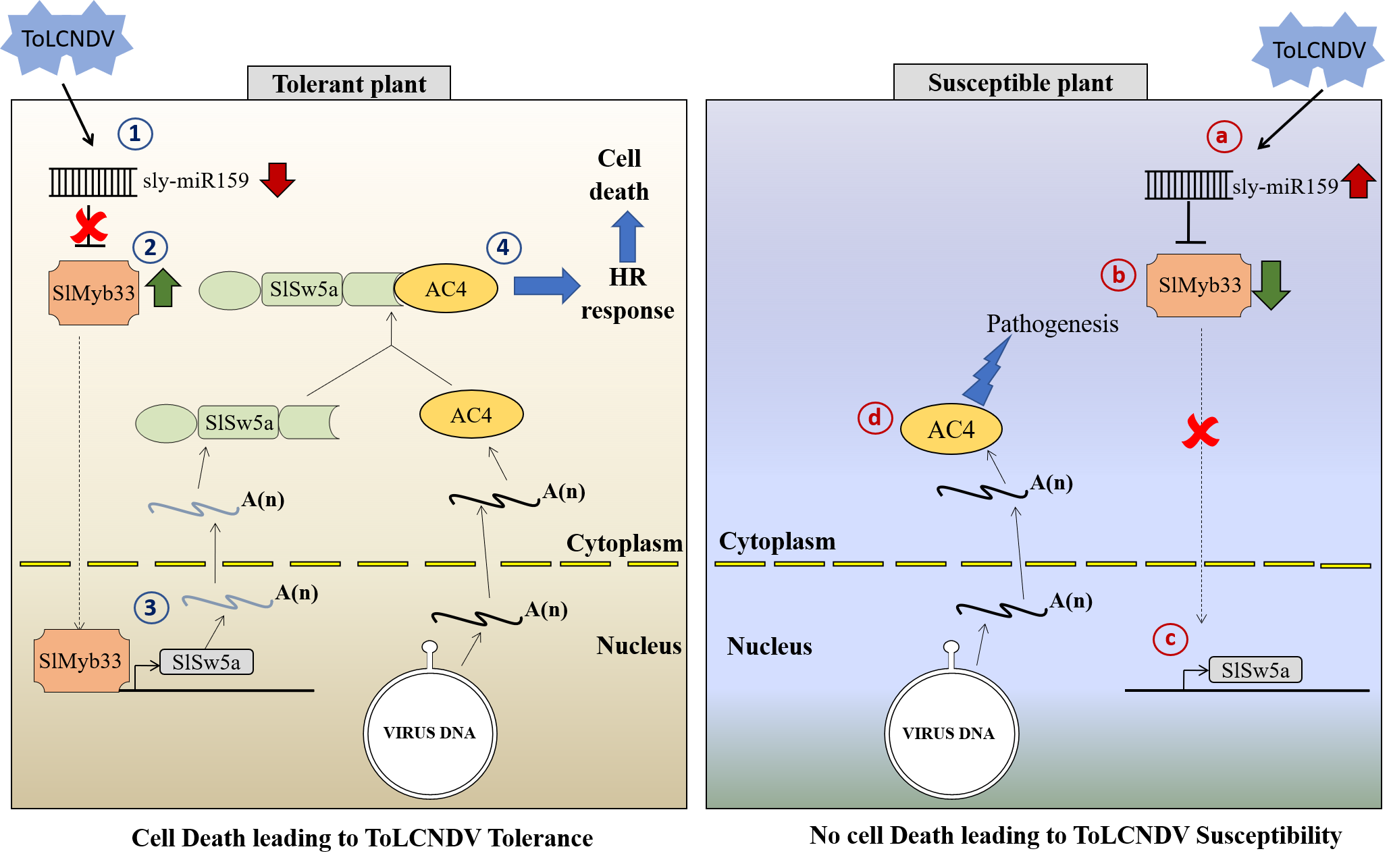
New mechanistic insight into Sw5a-mediated defense response in tomato against Tomato leaf curl New Delhi virus (ToLCNDV) infection may help in developing the resistance in susceptible cultivars of tomato.
AUG 17, 2021 | BY RATNESHWAR THAKUR
Researchers, studying the ways that naturally resistant tomato plant use to protect themselves from viruses, have unravelled a novel resistance mechanism that controls plant defense mechanisms. The finding lays the groundwork to develop resistance in susceptible cultivars of tomato through modern breeding and molecular approaches.
Tomato crop is prone to whitefly-transmitted viruses which causes devastative diseases. Among these viruses, Tomato leaf curl New Delhi virus (ToLCNDV) inflicts loss up to 100% that affects the life and livelihood of Indian farmers. Therefore, developing resistant varieties that can withstand Tomato leaf curl disease is the need of the hour, and to achieve this, understanding the mechanism underlying resistance is imperative.
Recently, a study published in the journal PNAS from Dr. Manoj Prasad's group at National Institute of Plant Genome Research (NIPGR), New Delhi, in the collaboration of Jawaharlal Nehru University, New Delhi and ICGEB, New Delhi - shows the novel role of the micro-RNA (miR159-MYB33) that activates Sw5a, a resistance gene that recognizes viral protein of ToLCNDV to trigger hypersensitive response, thereby restricting the virus spread. Hypersensitive response (HR) is a plant’s survival trick where in a rapid localized cell death occurs at the point of pathogen penetration in plants to stop the further spread, and this is mainly associated with disease resistance in plants.
According to this study resistant tomato employs Sw5a (R gene) that recognizes AC4 protein (viral effector) of ToLCNDV and activates hypersensitive response (HR). In this response, Reactive Oxygen Species (ROS) deposition occurs at the site of infection which restricts the virus spread to other parts of the plant.

The research team believes that this new mechanistic insight into Sw5a-mediated defense response in tomato against ToLCNDV infection may help in developing the resistance in susceptible cultivars of tomato. The study is also important as it presents the role of resistance (R) gene homologs against different plant viruses.
The research team included Namisha Sharma, Ashish Prasad, Pranav Pankaj Sahu, Mehanathan Muthamilarasan and Yusuf Khan from NIPGR, New Delhi; Jitendra Kumar Thakur from ICGEB, New Delhi; Mohd Waseem, Supriya Chakraborty from Jawaharlal Nehru University, New Delhi.
Journal Reference:
The Sw5a gene confers resistance to ToLCNDV and triggers an HR response after direct AC4 effector recognition
Disclaimer:
SciSoup claims no competing interest. To ensure accuracy and scientific relevance, this science blog has been run past the researchers - whose work is covered.
